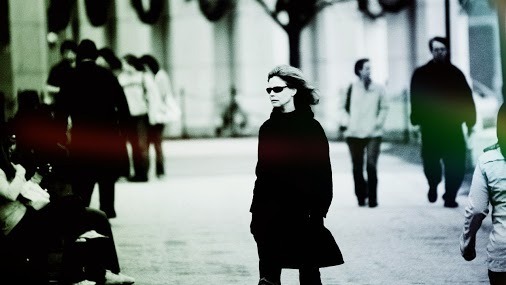Joseph L. Persia's Blog, page 18
October 21, 2013
Norman Mailer and the Death of the American Novel
Dan Agin writes, "Norman Mailer was a talented writer...
Dan Agin writes, "Norman Mailer was a talented writer. He was also a drunk, a misogynist, a banal philosopher, a mediocre politician, and a man apparently torn between his need to be a person of substance and his need to be a personage playing to the crowd."
Norman Mailer's life should serve as a warning to all aspiring novelist who get caught up in the spot light of trying to walk to two places at once. You can not serve both celebrity and your art, but you must choose one or the other.
"If the American novel is indeed dead or dying, it's more likely a result of the conglomerate corporatization of American publishing, the nepotism in American publishing, the silly belief that university English majors make the best acquiring and line editors (even for books about science and technology), the existence of a horde of literary agents who have been encouraged by publishers to act as gatekeepers when the expertise of agents if they have any is usually marketing and not literature, with many agent-gatekeepers not reading much because, as the old saying goes, their lips get tired. "I don't need to read the book to sell it," one agent liked to say."
This goes to the heart of the argument. While the elite intelligentsia, and corporate criminal dung heaps, looking for legitimacy, drink and hob nob in their ivory towers; and would be novelist run after them throwing flowers, the truth is the art of the novel is dying in the edits in the hands of people who are insane.
"Of course there are exceptions to this rule. But the rule exists and it does a great deal of damage to literature, and if any real good will come out of the current ebook revolution it will be to shake American publishing into another business model."
Will the current ebook revolution shake American publishing into a business model that will save the American Novel?
Link for more here: http://www.huffingtonpost.com/dan-agin/norman-mailer-and-the-dea_b_4132332.html?ir=Books&utm_hp_ref=books
Liberal, or Conservative, all can agree being watched is creepy. If you live in or anywhere near Washington...
Click to here to find out more: http://youtu.be/7mN4uacJr7I
October 20, 2013
Norman Mailer and the Death of the American Novel
Dan Agin writes, "Norman Mailer was a talented writer...
Dan Agin writes, "Norman Mailer was a talented writer. He was also a drunk, a misogynist, a banal philosopher, a mediocre politician, and a man apparently torn between his need to be a person of substance and his need to be a personage playing to the crowd."
Norman Mailer's life should serve as a warning to all aspiring novelist who get caught up in the spot light of trying to walk to two places at once. You can not serve both celebrity and your art, but you must choose one or the other.
"If the American novel is indeed dead or dying, it's more likely a result of the conglomerate corporatization of American publishing, the nepotism in American publishing, the silly belief that university English majors make the best acquiring and line editors (even for books about science and technology), the existence of a horde of literary agents who have been encouraged by publishers to act as gatekeepers when the expertise of agents if they have any is usually marketing and not literature, with many agent-gatekeepers not reading much because, as the old saying goes, their lips get tired. "I don't need to read the book to sell it," one agent liked to say."
This goes to the heart of the argument. While the elite intelligentsia, and corporate criminal dung heaps, looking for legitimacy, drink and hob nob in their ivory towers; and would be novelist run after them throwing flowers, the truth is the art of the novel is dying in the edits in the hands of people who are insane.
"Of course there are exceptions to this rule. But the rule exists and it does a great deal of damage to literature, and if any real good will come out of the current ebook revolution it will be to shake American publishing into another business model."
Will the current ebook revolution shake American publishing into a business model that will save the American Novel?
Link for more here: http://www.huffingtonpost.com/dan-agin/norman-mailer-and-the-dea_b_4132332.html?ir=Books&utm_hp_ref=books
October 18, 2013
Liberal, or Conservative, all can agree being watched is creepy. If you live in or anywhere near Washington...
Click to here to find out more: http://youtu.be/7mN4uacJr7I
October 16, 2013
Now for something fun to consider~
Thinking about writing about/creating a character in your novel that...
Thinking about writing about/creating a character in your novel that can live without being tracked?
…Well, if you want to get it right, you will have to do more than write what’s becoming a ridiculous cliché of having your character toss a phone out of the car window.
In a recent Pew Internet study, 37% of respondents said they thought it was possible to be completely anonymous online, However in this recent article by: Sarah Kessler and according to Nico Sell, the co-founder of a secure communication application and an organizer of the hacker conference Def Con the correct answer is “100% no,"
Sarah Kessler is an associate editor at Fast Company, where she writes about technology, startups and social media. Fast Company tracked down the most tracking-conscious people they could find about strategies for staying anonymous. The article has a list of four daily, offline tasks that get more sophisticated if you're writing a character that is avoiding surveillance.
_1. Getting Places
A few years ago, a man who goes by the Internet handle “Puking Monkey” noticed devices reading his toll pass in places where there weren’t any tolls. He assumed that they were being used to track drivers’ movements. “People would say, 'Well you don’t know that, because it doesn’t tell you when it tracks you,'” he tells Fast Company. “I said, 'Okay, I’ll go prove it.' ” …”
So my question, with this summer's revelations of the NSA's broad surveillance program now common public knowledge, do you think if you were to write a character in your novel that can live without being tracked that you will need to write a little more logical than just throwing the phone out of a car window?
Link to article here: http://www.fastcompany.com/3019847/think-you-can-live-offline-without-being-tracked-heres-what-it-takes
Geez, I almost forgot, I have a main character in my book, The Sun they Called The Moon , who is hiding and on the run.
3019847-poster-p-2-think-you-can-live-offline-without-being-tracked-heres-what-it-takes.jpg

October 14, 2013
Reshared post from Joseph Persia:
Original Post from Joseph Persia:
The Idea of the Author Is Facing Extinction
Are Authors facing burn out and extinction?
Jane Friedman, Web Editor for the Virginia Quarterly Review, based at the University of Virginia, where she also teaches digital publishing and online writing seems to indicate the possibility.
She writes:
"Instead of composing our symphony, we create a “shadow symphony,” of which we ourselves are the orchestra, the composer and the audience. Our life becomes a shadow drama, a shadow start-up company, a shadow philanthropic venture. […] The amateur is an egotist. He takes the material of his personal pain and uses it to draw attention to himself. He creates a “life,” a “character,” a “personality.”
There is a danger in the industry’s call to authors to build relationships with readers, to be responsive and engaged, to be in “conversation.” How big of a danger, however, totally depends on the values and goals of the writer. If the goal is sales and long-term readership growth, there might not be any harm at all. But if the activities impede the writer from pursuing his primary purpose (however that may be described or quantified), then we can see the call to engagement as seriously detrimental and distracting."
You are the ones who are juggling all these plates, are theses new engagements impeding your primary purpose to write your story?
The Idea of the Author Is Facing Extinction
Are Authors facing burn out and extinction?
Jane Friedman...
Are Authors facing burn out and extinction?
Jane Friedman, Web Editor for the Virginia Quarterly Review, based at the University of Virginia, where she also teaches digital publishing and online writing seems to indicate the possibility.
She writes:
"Instead of composing our symphony, we create a “shadow symphony,” of which we ourselves are the orchestra, the composer and the audience. Our life becomes a shadow drama, a shadow start-up company, a shadow philanthropic venture. […] The amateur is an egotist. He takes the material of his personal pain and uses it to draw attention to himself. He creates a “life,” a “character,” a “personality.”
There is a danger in the industry’s call to authors to build relationships with readers, to be responsive and engaged, to be in “conversation.” How big of a danger, however, totally depends on the values and goals of the writer. If the goal is sales and long-term readership growth, there might not be any harm at all. But if the activities impede the writer from pursuing his primary purpose (however that may be described or quantified), then we can see the call to engagement as seriously detrimental and distracting."
You are the ones who are juggling all these plates, are theses new engagements impeding your primary purpose to write your story?
October 11, 2013
This is the face of courage. This is the voice of truth. If you never heard it, you may hear it. Do ...
October 10, 2013
Those Crazy Canadians Do It Again.
Writer Alice Munro has won this year's Nobel Prize in Literature...
Writer Alice Munro has won this year's Nobel Prize in Literature.
Glen Weldon, a contributor to NPR's pop culture blog Monkey See explains why she deserves this most prestigious of literary awards.
It took me a shamefully long time to understand that Munro's tone was, of course, entirely intentional, and inextricably bound up with her chosen subjects: The vast distance stretching between the person we project into the world and our most essential self.
Writers take note, "...to show them that the evil that exists in the world doesn't always twirl its mustache, I'd bust out a very early Munro story, "Dance of the Happy Shades."
In it, a young girl goes with her mother to a recital in the home of the girl's piano teacher, Miss Marsalles. The piano teacher's home is in a slightly shabbier part of town. Miss Marsalles is distracted (she's looking after a sick relative) and, worse, single. As such, she lacks the organizational skills of the mothers who gather to whisper about the party spread Miss Marsalles has laid out — including a bowl filled with punch that has gone flat even before the first guest arrives.
"I tried to tell her not to put it all out ahead of time," Mrs. Clegg whispers, smiling delightedly, as if she were talking about the whims and errors of some headstrong child. "You know she was up at five o' clock this morning making sandwiches. I don't know what things are going to taste like. Afraid she wouldn't be ready, I guess. Afraid she'd forget something. They hate to forget."
"Food shouldn't be left out in hot weather," my mother says.
"Oh well, I guess it won't poison us for once. I was only thinking what a shame to have the sandwiches dry up. And when she put the ginger ale in the punch at noon I had to laugh. But what a waste."
This, I'd tell them. This is the evil of the everyday. The way we take delight in negating each other, all the while congratulating ourselves ("I tried to tell her") for our forbearance ("I was only thinking what a shame"). How, when confronted with something that offends our sensibility, we take comfort in rules ("Food shouldn't be left out") and piety ("But what a waste.")
http://www.npr.org/blogs/monkeysee/2013/10/10/231542477/alice-munro-the-punchbowl-and-everyday-villainy
October 9, 2013
Reading literary fiction improves empathy, study finds
Psychologists David Comer Kidd and Emanuele ...
Psychologists David Comer Kidd and Emanuele Castano, at the New School for Social Research in New York, have proved that reading literary fiction enhances the ability to detect and understand other people's emotions, a crucial skill in navigating complex social relationships.
In addition, may I humbly add that it may enhance the “crucial skill” of an author to write compelling complex social relationships in fiction story telling?
Case in point, “What great writers do is to turn you into the writer. In literary fiction, the incompleteness of the characters turns your mind to trying to understand the minds of others," said Kidd.”
The research here is interesting, but it does not prove what literary fiction is! So, let us assume for the moment that literary fiction, like pornography is recognizable when you find it.
Moreover, when you find literary fiction, do you agree that it enhances the “crucial skill” of an author to write compelling complex social relationships in fiction story telling?
http://www.theguardian.com/books/booksblog/2013/oct/08/literary-fiction-improves-empathy-study











